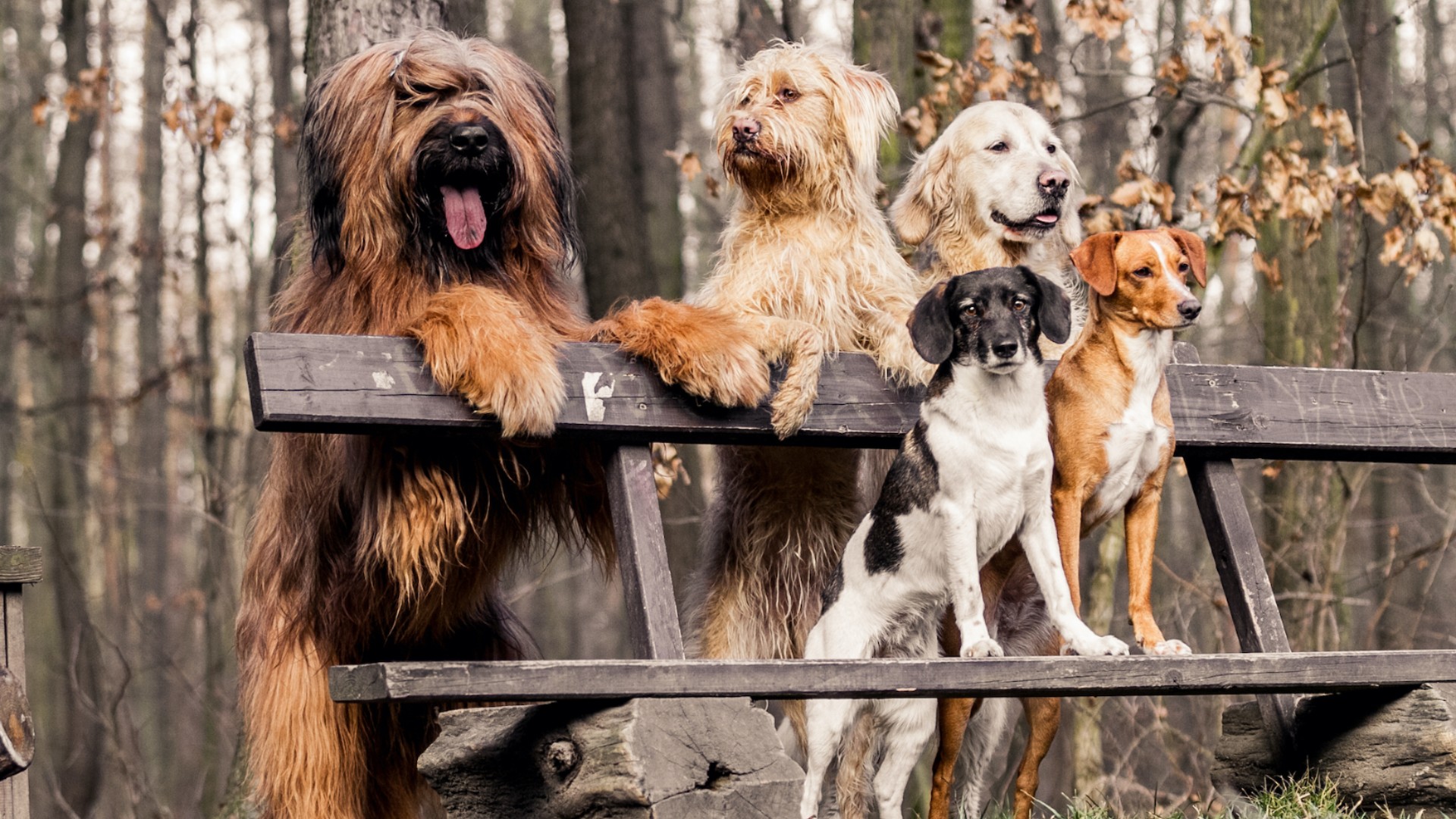
Could dogs survive without humans?
In some ways, dogs would be better off without people.

It's easy to look into the adoring eyes of our pampered pups and think they'd be totally helpless without us. Even the thought of a pet dog living out in the wild is enough to make some owners despair. But imagine if humans suddenly disappeared and dogs had to fend for themselves. In such an apocalyptic scenario, could dogs survive in a world without people?
"I have no doubt that dogs would survive without us," Jessica Pierce, a faculty affiliate with the Center for Bioethics and Humanities at the University of Colorado Anschutz Medical Campus and author of "A Dog's World: Imagining the Lives of Dogs in a World without Humans" (Princeton University Press, 2021), told Live Science. "Dogs are descended from wolves and they still have much of the behavioral repertoire of wolves and other wild canids, so they know how to hunt and scavenge."
Without humans, our former pets would likely roll back the clock on their domestication and live as wild species do. Not all dogs would survive this transition, though. There's a great variety of dog breeds today, and some are less equipped for the wild than others. For example, flat-faced dogs such as pugs and bulldogs are prone to various health problems, including those that restrict their breathing, which would hinder their ability to hunt. They are also bred with short tails, which would hurt them socially when they interacted with wild dogs.
"Tails are an important part of the communicative toolbox," Pierce said. "Even if you're slightly less skillful at communicating something like an aggressive feeling or a submissive feeling, you're more likely to wind up in a fight than if you're able to send clear signals."
Related: What if humans had tails?
Dogs that are likely to wind up in a fight are more likely to get injured and less likely to survive. Fortunately for our barking buddies, humans wouldn't be around to dictate the canines' reproductive habits any longer. As a result, different breeds would mix, allowing natural selection to forge the fittest mutts.

These doomsday dogs would also interbreed with wolves to create hybrids where their ranges overlapped. Stray dogs and wolves already mix in Europe in countries such as Italy, according to a 2017 study published in the journal Global Ecology and Conservation. Friederike Range, an associate professor at the University of Veterinary Medicine Vienna who studies both dogs and wolves, told Live Science that the main thing that really separates the two is us.
Sign up for the Live Science daily newsletter now
Get the world’s most fascinating discoveries delivered straight to your inbox.
"While wolves are primarily hunters and dogs primarily scavengers, it's a continuum," Range said. "And wolves can also scavenge and dogs can go hunting." For example, wolves can be found living in human garbage dumps just like stray dogs do, and stray dogs can be found hunting wild prey just like wolves do.
But even if dogs could get by in a humanless world, wouldn't they be miserable without any morning fetch or evening fuss? Neither Pierce nor Range see the dogs suffering psychologically without owners.
Pierce noted that, in a domestic setting, humans suppress a lot of dog behaviors — such as roaming, digging and peeing — because we find them annoying. Ownerless dogs don't have such restrictions, and while they also don't have the same home comforts as pet dogs do, they may be better off psychologically. "What they do have that pet dogs lack is freedom," Pierce said.
Having studied dogs living independently from humans, Range has seen dogs form their own social groups and believes that food is a more important consideration than human companionship in these canines' well-being.
"If we were to disappear, the food would be the main problem for the dogs, not losing the human as a social partner," Range said. "As long as they could find food, they would be perfectly happy without us."

Patrick Pester is the trending news writer at Live Science. His work has appeared on other science websites, such as BBC Science Focus and Scientific American. Patrick retrained as a journalist after spending his early career working in zoos and wildlife conservation. He was awarded the Master's Excellence Scholarship to study at Cardiff University where he completed a master's degree in international journalism. He also has a second master's degree in biodiversity, evolution and conservation in action from Middlesex University London. When he isn't writing news, Patrick investigates the sale of human remains.










